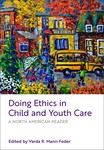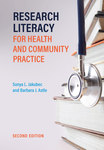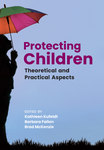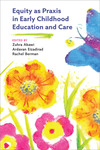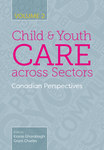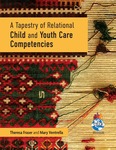We don’t actively support Internet Explorer
It appears that you are using Internet Explorer, which has been discontinued by Microsoft. Support has ended for versions older than 11, and as a result you may face security issues and other problems when using it.
We recommend upgrading to a newer browser such as Firefox, Google Chrome, or Edge for a much better experience across the web.
While this site may work with Explorer, we are not testing and verifying it, so you may run into some trouble or strange looking things.
Overview
In an inviting and conversational style, author Kiaras Gharabaghi offers a concise guide introducing foundational research methods for the study and practice of child and youth care, aiming to awaken a lifelong interest in how research can inform, improve, and evoke critical reflection on what child and youth care is, and can be, about. Presenting research as a relational tool, the text builds basic practical research skills, such as how to conduct interviews and focus groups, how to construct research questions and surveys, and how to select research designs to best serve each project.
This essential volume highlights research as an important element of child and youth care practice, explores different qualitative and quantitative research designs, and examines how they are implemented, including various aspects of recruiting research subjects, the collection and analysis of data, and the limitations of research. Written from an explicitly anti-racist perspective, the text includes a chapter dedicated to Afrocentric and Indigenous research approaches and draws all its examples from the field of child and youth care.
The rich in-text pedagogical features include a glossary of key terms and two appendices that detail an ethics protocol and describe a small research project from start to finish. Students of child and youth care, social work, and youth work/development programs are bound to appreciate this engaging and highly readable text.
FEATURES
- covers the politics of research, the intersections of research and advocacy work, and Afrocentric and Indigenous research lenses
- features text boxes showcasing research insights, interviews with child and youth care researchers, and ethical considerations
- accessible for those new to research in child and youth care, while offering insight into how to deeply understand research at more advanced levels of engagement
Table of Contents
Acknowledgments
List of Textboxes, Tables and Figures
Preface
Introduction
Part I: Research in Context
Chapter 1: Party Words and Pick-Up Lines: Situating Oneself in Research
Chapter 2: Fake Presidents, Fake Research, Fake Practice: The Politics of Research
Chapter 3: Stuff We Do without Knowing: Value-Driven Practices
Chapter 4: The Wonder Years: Formulating Research Questions
Chapter 5: You’re Never Really First: The Literature Review
Chapter 6: Your Truth, My Truth, Everybody’s Lies: Research versus Advocacy
Part II: Research Designs, Methods and Tools
Chapter 7: Celebrating Your Senses: Observation and Ethnography
Chapter 8: I Know Because You Know: Afrocentric and Indigenous Research Methods
Chapter 9: Awesome Researchers Don’t Always Look Like Researchers: Participatory Action Research
Chapter 10: May I Listen to You?: Recruitment and Ethics
Chapter 11: Relational Conversations: Interviewing and Focus Groups
Chapter 12: I Bet You Can Count: Quantitative Research Methods
Chapter 13: Romantic and Relational Variables: The Tools and Methods of Quantitative Research
Chapter 14: Survey Says…: Asking Questions in Surveys and Interviews
Chapter 15: So Then They Said…: Data Analysis in Qualitative Research
Part III: Research in Perspective
Chapter 16: Are We There Yet?: Limitations of Research Findings
Chapter 17: Because I Learned Something: The Interface of Research and Practice in Child and Youth Care
Appendix 1 Elements of an Ethics Protocol
Appendix 2 A Small Research Project, Start to Finish
Glossary of Terms
List of References
Index


